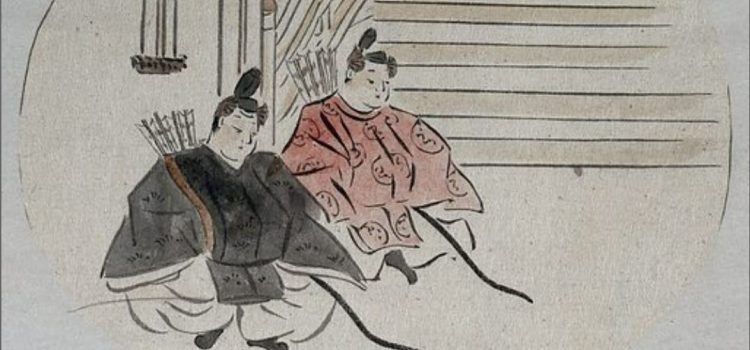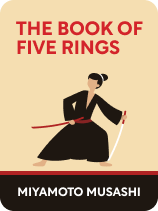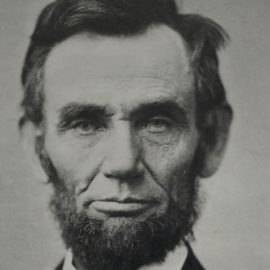

This article is an excerpt from the Shortform book guide to "The Book of Five Rings" by Miyamoto Musashi. Shortform has the world's best summaries and analyses of books you should be reading.
Like this article? Sign up for a free trial here .
What does legendary samurai Miyamoto Musashi write in The Ground Book in The Book of Five Rings? Why does Musashi put so much emphasis on the fundamentals?
In The Book of Five Rings, Miyamoto Musashi’s philosophy is that in order to become a great samurai, one must first master the fundamentals. He believed in a student-centric approach to teaching, where the master is simply there to help guide the student on their own journey.
Here are Musashi’s lessons from the Ground Book.
The Ground Book: Musashi’s Fundamentals of the Way
The Ground Book introduces some of the most important aspects of Miyamoto Musashi’s philosophy. We can group these core fundamentals into three categories: Know your discipline, use your tools well, and be flexible, patient, and disciplined.
1. Learn and Train Before Application
For Musashi, the foundation of effective strategy lies in first establishing a thorough knowledge of the samurai principles. Developing genuine knowledge of your discipline depends on two factors:
1. You are responsible for your own development and learning. Although Musashi mentions having his own school for aspiring Samurai and writes The Book of Five Rings to explain the Way to others, he nevertheless believes that it is up to each individual to take charge of his own learning. He uses the metaphor of the needle and thread to explain his reasoning: The teacher is the needle, but it is the student, as the thread, who must find a way through the needle in developing and applying his knowledge. In other words, the teacher can facilitate learning, but it is the student’s responsibility to put what he learns into practice.
2. You must thoroughly know the ways of your art before you can put it into effective practice. The aspiring warrior must seek to know every aspect of his art, from technique to weaponry to achieving the right state of body and mind, before he is ready for combat. Musashi repeatedly warns that this is not a quick or easy process: he urges his reader to meditate deeply and slowly on what he has written and to tirelessly study “day and night,” as Musashi himself claims to have done for decades.
2. Use the Right Tools and Resources
Musashi writes that the true warrior is aware of all of the resources available to him, and strategizes accordingly. These resources include tools, such as different swords and other forms of weaponry, and the different abilities warriors have both individually and when working collectively as an army.
- The warrior must become knowledgeable in different forms of weaponry and their uses. The true warrior needs to be practical: He should always focus on use over decoration when choosing a weapon. Musashi also warns the warrior against becoming too reliant on any one weapon in particular—a true warrior knows how to win with any weapon, and he does not pick favorites.
- The warrior must assess which tools or resources are best for each combat. Musashi compares the warrior to a carpenter when discussing the proper use of resources. Just as the carpenter must develop a thorough understanding of which tools and materials are available to him before he begins to build a house, so too must the warrior assess what is available and what is best to use in each situation.
- The warrior must have an awareness of others’ abilities as well as his own. If the warrior is a leader—like the carpenter as a worksite foreman—he must understand how best to make use of others’ abilities as well as his own in order to achieve victory.
3. Be Flexible, Patient, and Committed
While Mushashi emphasizes the importance of developing a deep knowledge of the warrior’s art and samurai principles first and foremost, he also argues that in order to apply this knowledge effectively, the warrior must develop flexibility of mind. Flexibility of mind depends on the following habits:
- Applying your knowledge and skills within different contexts. Musashi warns against getting too comfortable with, or reliant upon, one particular setting when waging combat. The true warrior needs to know how to use his skills and knowledge equally well regardless of circumstances. Musashi also reminds his reader that “real world” applications of knowledge can look very different from the “textbook” treatment—this is why the warrior needs to be prepared to deal with any eventuality.
- Paying attention to the smallest things as well as the biggest things. True knowledge lies in knowing everything of relevance, no matter how minor it may seem. Musashi makes several cryptic comments about how what is small is large, and what is large is small. One interpretation could be that “small” and “large” are often matters of perspective: What might be a minor factor in one situation could be a much more crucial factor in another, depending on circumstances.
- Recognizing that small things can become more dangerous or important than things that appear larger, especially since small things are so easy to overlook or underestimate. Musashi uses the example of a large group of enemies compared to an individual one. While the large group might appear more threatening, it is nevertheless easy to spot, and a large group of combatants can’t change their position easily. An individual warrior, by contrast, is harder to spot, more nimble, and therefore more unpredictable. In this respect, an individual warrior can be more dangerous than many fighters working collectively.
Develop Patience and Commitment
Miyamoto Musashi’s philosophy consistently emphasizes that developing mastery in any discipline takes a great deal of time and perseverance. His three main strategies for nurturing resilience and commitment are:
- Recognize that beginnings are always difficult. Just because something is hard to do now doesn’t mean that it will always be difficult. Musashi uses examples of various weapons to illustrate this point—no weapon is easy to wield at first, he points out. Over time, difficult tasks will become easier.
- Undergo constant training. Musashi writes about how he spent many long years completely absorbed in learning about his art and training himself in it. He expects the same of any other aspiring warrior. He repeatedly stresses how crucial it is to commit yourself to rigorous, constant training in order to develop true mastery in your chosen discipline.
- Have an all-or-nothing attitude toward victory. Musashi describes “the spirit of winning” as being absolutely committed to achieving your goal. He says that the warrior must be prepared to use any weapon and to deal with any obstacle. A singular focus on victory is essential.
Musashi’s 9 Principles
At the end of the Ground Book, Musashi lists nine general principles for warriors wishing to learn the Way. These principles are:
- Be honest.
- Train constantly.
- Familiarize yourself with other arts.
- Develop knowledge of other professions.
- Learn to tell the difference between true loss and gain.
- Develop intuitive judgment and understanding for everything.
- Have perception as well as sight.
- Be detail-oriented.
- Be purposeful.
(Shortform note: Musashi doesn’t elaborate on these samurai principles, or give specific advice on how or when the warrior can apply them during or after training. However, some of these principles reflect the qualities that Musashi urges the warrior to have elsewhere in the text: a total commitment to learning, iron discipline in training, the development of both perception and sight, and paying equal attention to small things as well as large. As with so much of Musashi’s approach in The Book of Five Rings, it is up to the warrior (or student) to meditate upon these principles and to learn how best to apply them in his own life.)

———End of Preview———
Like what you just read? Read the rest of the world's best book summary and analysis of Miyamoto Musashi's "The Book of Five Rings" at Shortform .
Here's what you'll find in our full The Book of Five Rings summary :
- Insights from the famous Samurai Miyamoto Musashi about the Way of the Warrior
- How to apply Musashi’s teachings to your personal and professional lives
- Why success is not based on brute strength or innate talent






